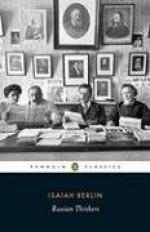
|
| Name: _________________________ | Period: ___________________ |
This test consists of 15 multiple choice questions and 5 short answer questions.
Multiple Choice Questions
1. What social movement did the Russian Intelligentsia contribute to?
(a) Slavophilia.
(b) Jingoism.
(c) A new round of social reforms.
(d) The Russian Revolution.
2. How was the period that followed the Tsar's acts known?
(a) A period of prosperity.
(b) A period of repression.
(c) A period of tolerance.
(d) A period of terror.
3. What is the stereotype of the Russian intellectual?
(a) Crabby and self-defeating.
(b) Gloomy and pessimistic.
(c) Reform-minded and logical.
(d) Romantic and progressive.
4. Which of the following describes Russian censorship during the middle of the nineteenth century?
(a) Censors intimidated writers who wrote subversive material.
(b) Censors told writers what to write.
(c) Censors persecuted the families of authors.
(d) Censors looked for subversive ideas.
5. In what point do Annenkov and Herzen agree about Russian Intelligentsia?
(a) They both experienced a profound camaraderie with the intelligentsia.
(b) They were both repelled by the shallow optimism and naivete of the intelligentsia.
(c) They were both disillusioned by the moral bankruptcy of the intelligentsia.
(d) They were both drawn to the romantic prospects of the movement.
6. What was de Maistre's position?
(a) He was an envoy of the kingdom of Savoy to Russia.
(b) He was the minister in charge of culture in Moscow.
(c) He was a landowner in Tolstoy's district.
(d) He was an attache to the Tsar.
7. Who wrote the memoir titled "The Birth of the Russian Intelligentsia"?
(a) Pavel Annenkov.
(b) Alexander Herzen.
(c) Vissarion Belinksy.
(d) Ivan Turgenev.
8. Who was the Tsar following the Decembrist rebellion?
(a) Herzen.
(b) Charles.
(c) Nicholas I.
(d) Nicholas II.
9. What was the result of Russia's "moral quarantine"?
(a) Ethnic cleansing of Tartars.
(b) A renaissance in Russian literature.
(c) Intense Slavophilia.
(d) A decrease in censorship.
10. What did Herzen see as the individual's role in history?
(a) Herzen saw as the individual's role in history as an obligation to heal society from the damages done by progress.
(b) Herzen saw as the individual's role in history as an obligation to understand and cooperate with historical forces.
(c) Herzen saw as the individual's role in history as an obligation to fulfill his own nature.
(d) Herzen saw as the individual's role in history as an obligation to manifest the universe's latent desires.
11. What had been the outcome of the European states' revolution?
(a) The Thirty-Years' War.
(b) The revolution failed.
(c) A new era of peace.
(d) Napoleonic wars.
12. How does Berlin describe Herzen's importance?
(a) Berlin describes him as a moral thinker of the first importance.
(b) Berlin describes him as writer of no lasting importance.
(c) Berlin describes him as censor who had a powerful effect on Russian literature.
(d) Berlin describes him as a theorist whose ideas were popular for a short time.
13. How did the epoch that followed the Tsar's acts in the wake of the Decembrist Rebellions end?
(a) With the Tsar's overthrow in 1850.
(b) With Tsar's conversion in 1845.
(c) With the German invasion of 1848.
(d) With the Tsar's death in 1855.
14. What was Pavel Annekov's role in Russian culture?
(a) Essayist and revolutionary.
(b) Writer and activist.
(c) Serious critic.
(d) Intellectual tourist.
15. When did the Russian intelligentsia emerge from university?
(a) 1879-1896.
(b) 1838-1848.
(c) 1848-1855.
(d) 1855-1870.
Short Answer Questions
1. What insight did Herzen value in the thinkers who influenced him?
2. Which thinker affected Herzen?
3. How did authors fare in the mid-nineteenth-century Russian literary scene?
4. Who spread German Romantic philosophy in student circles?
5. What part of Tolstoy's legacy do critics praise?
|
This section contains 640 words (approx. 3 pages at 300 words per page) |

|




